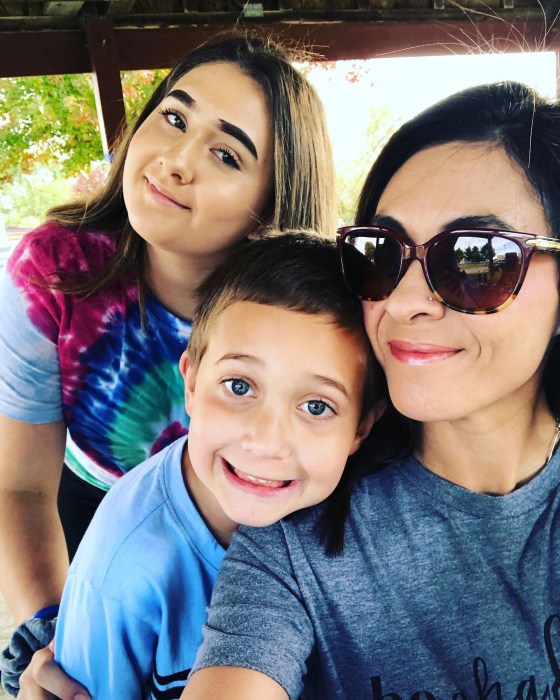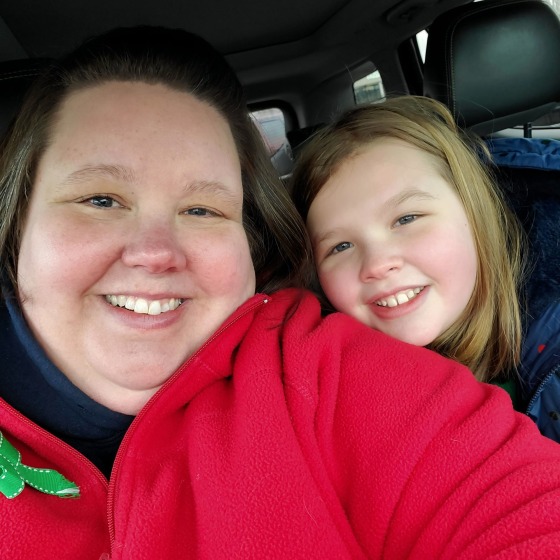Infertility puts stress on every part of your life, including friendships. Sometimes, it’s too much.
Fertility struggles don’t only affect those trying to conceive — they can wreak havoc on careers and friendships, too.
As a woman with Polycystic Ovarian Syndrome (PCOS), I suffered two devastating miscarriages over three years while trying to conceive my second child.
My youngest is now 10, and I’m often reminded of the close friendship I lost while trying to conceive. The absence of her still hurts. For years, I felt like my body failed me and, in turn, so did this relationship. It couldn’t sustain the depth of despair I carried every second of every day I couldn’t conceive.

One in 5 U.S. women are unable to get pregnant after a year (or more) of trying, according to the CDC, and a couple’s chances of successful pregnancy decline with age. In many instances, envy comes between once-inseparable friends who may, or may not, ever re-build.
Trisha Elliott, 41, a healthcare worker living in Ohio, struggled to conceive for years after a PCOS diagnosis at the age of 18. She and her new husband felt ready to start a family — except, it wasn’t happening and it began to affect her everyday life.
Elliott still recalls a reproductive endocrinologist’s harsh words.
“The new doctor said … that I wasn’t a candidate for IVF because of my BMI,” she said. “I remember leaving my appointment that day and feeling like I would never be a mom. It was a very dark stage of my life.”
The experience left her so emotionally drained, she resigned from her job as a preschool teacher.
Baby shower invitations came in the mail. I couldn’t go to them. I tried once, but I sat in the parking lot in tears and had to leave. – TRISHA ELLIOTT
“Many of the children I took care of didn’t come from the best home lives and it eventually made me very bitter towards the parents,” Elliot tells TODAY Parents. “Why were they able to have children and yet they didn’t want to take care of them? Why was I being punished like this?”
The desire to conceive also interfered with Elliot’s relationships with friends and family.
“I didn’t want to go out with my friends anymore. I was having lots of headaches and became very depressed,” she said. “I thought my marriage was going to end because all we did was argue. Everything seemed to revolve around having a baby. More friends and family became pregnant and baby shower invitations came in the mail. I couldn’t go to them. I tried once, but I sat in the parking lot in tears and had to leave. I just didn’t understand.”

Infertility can last years at a time, with little hope of becoming pregnant for the first, second, or even fifth time. In the absence of that pregnancy, feelings of failure and low-self-worth set in. Friends once sought out for comfort — the ones who successfully carry to term over and over again without trying — now painfully remind the person dealing with infertility of what they’re missing.
Loss of friendship is something Allison Officer, 37, an intervention specialist living in Ohio, knows too well. After more than six years trying to conceive with endometriosis, Officer wasn’t sure she’d ever welcome a baby. She and husband, Andrew, endured several rounds of IVF but that, too, never came to fruition.
We seemed to no longer get invited because they were getting together with their kids. – ALLISON OFFICER
They tried frozen egg donation, and she did become pregnant but it ended in miscarriage. Some of her friendships ended, too.
“I lost some friends or we lost touch because so many women my age were moving on to that next chapter when we could not,” Officer tells TODAY. “Sometimes we just didn’t get together anymore because they were busy with their babies and no longer socializing as much, while other times we seemed to no longer get invited because they were getting together with their kids.”

Crying before baby showers is a pretty common experience for people struggling with infertility.
“I had one friend from college who had repeatedly questioned to me whether she wanted to have kids. And then she got pregnant relatively easily … twice,” Officer tells TODAY. “And it just became emotionally impossible for me to invest in our friendship because of the jealousy and hurt that I was feeling. I was invited to her baby shower and luckily it was co-ed so my husband could join me but I cried several times that day before we went.”
Officer added that she struggled knowing that this friend “was getting to experience everything I wanted, and wasn’t even sure if she wanted it.”
The two remained friendly — but “from a distance,” Officer stated, as she admits she wasn’t capable of listening to her friend’s pregnancy woes.
“It was just too much,” she said.
While some relationships suffered, however, others strengthened.
“Some friends really rallied behind us and provided support,” Officer said. “We actually had several friends who had gone through infertility as well, so those friendships continued to get stronger and stronger as we related so well to one another no matter where in the journey each of us was. I even made some new friends through my support group and online forums (Facebook, Reddit).”
Infertility is a chronic disease that has an emotional impact similar to other chronic diseases. – DR. ANATE BRAUER, REPRODUCTIVE ENDOCRINOLOGIST
Eventually, she and her husband tried a fresh egg donation which led to a successful pregnancy with twin boys. While one did not survive, the other did. Officer welcomed baby boy Campbell Emmett in February.
Dr. Anate Brauer, a reproductive endocrinologist and IVF director at Shady Grove Fertility in New York tells TODAY that people experiencing infertility should seek support as soon as possible.
“Infertility is a chronic disease that has an emotional impact similar to other chronic diseases,” she says.
Support groups in person or on social media can help, she notes, “But buyer beware, do not get medical advice or allow other people’s fertility journeys to impact your own.”
“Studies have shown that women who have struggled with infertility actually have a higher rate of postpartum depression,” Brauer added. “Seek support if you need it. This includes therapy and medication.”
It doesn’t take a counseling degree to be a good friend, though. Brauer said there’s one thing everyone can do to help someone going through infertility.
“Just listen,” she said. “This is the hardest but most important thing you can do for a friend who is struggling. Try not to give advice or share stories of treatments others are undergoing. Every case is unique and different.”
In retrospect, Elliot, who now has a 10-year-old daughter, says she wishes she could have been more open about her struggles.
“As I look back now on my experience, the thing that I wish I could change is to talk to more people about what I was experiencing,” Elliott concluded. “I wish that I would have sought out support in that time of darkness. There are so many women struggling to become mothers and while that is not a club that any of us wanted to join, we need to know that we can lean on each other during those hard days.”
Source: today.com









